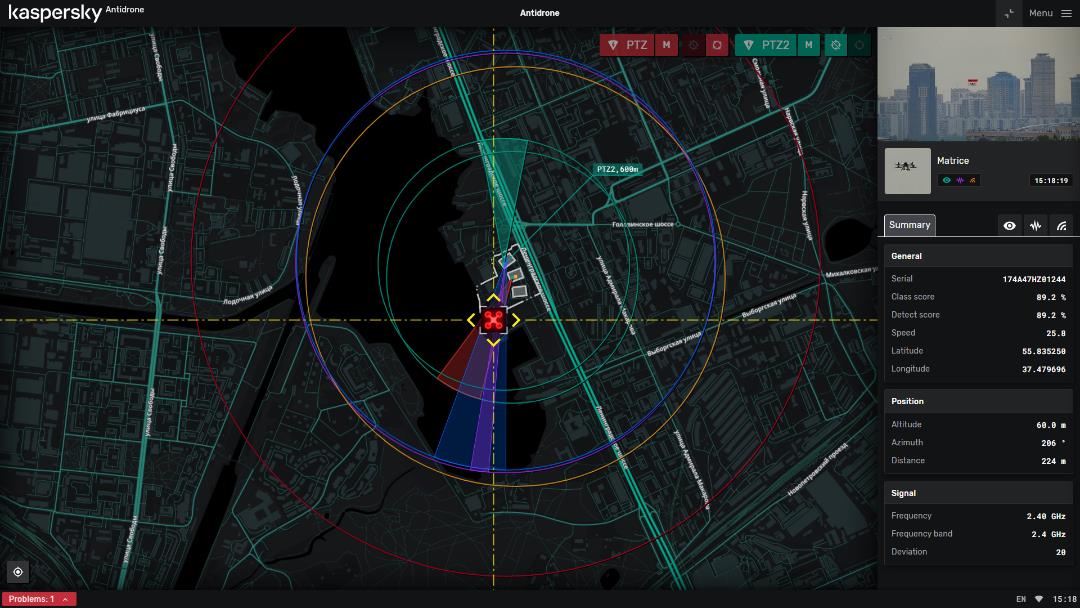By 2027, the global drone civilian market is estimated to grow to $21.62 billion
Islamabad: Kaspersky Antidrone Solution is a comprehensive system that detects, identifies, and neutralizes civil drones that pose a security or physical threat to various settings, including critical infrastructure, public events, and commercial facilities.
By 2027, the global drone civilian market is estimated to grow to $21.62 billion, nearly doubling from 2023. Therefore, there is an increased need to protect commercial facilities, critical infrastructure and public events from drones conducting unauthorized video recordings or even industrial espionage. Thus, to protect against civilian drones, which are constantly becoming more sophisticated, customers are turning to anti-drone solutions. To meet these growing needs, Kaspersky is enhancing its Antidrone solution with state-of-the-art technology, including AI algorithms and neural networks.
Amid a constantly growing civilian drone market, Kaspersky has given its anti-drone solution a major new update. The latest version features improved system scalability, an interface that operates 12 times more quickly, and optimized incident visualization.
In the updated system, the scalability of Kaspersky Antidrone has significantly and multilaterally increased. Through the advanced integration capabilities, the solution can serve as a whole regional ecosystem. Now, it’s easier to integrate Antidrone with third-party solutions via API, enabling the geographic coverage area to be expanded, while managing the full system from one console.
Kaspersky Antidrone has its own developed map, where a significant redesign and a new framework were made, resulting in higher working speed. All graphic elements are easily displayed in real time. Additionally, users now can easily switch between video analytics and map modes to inspect all the details more closely.
“When people talk about anti-drone solutions, hardware immediately comes mind. But software is becoming increasingly significant as threat landscape is transforming and individual hardware devices cannot provide comprehensive security. We are focused on developing and improving the entire package of the solution. In the new release, we have optimized many vital functions in the software and solved the issue of false positives. We have simplified the interface navigation and eliminated information overload. Integration capabilities have also been improved, which has reduced developer resources to deploy the solution on site,” comments Usman Qureshi, country representative for Kaspersky in Pakistan.







